‘The Fabelmans’ Scene-Stealer Judd Hirsch Recalls How He Got Carte Blanche From The World’s Most Famous Director – And A Hell Of A Lot More Besides
- Oops!Something went wrong.Please try again later.
- Oops!Something went wrong.Please try again later.
- Oops!Something went wrong.Please try again later.
- Oops!Something went wrong.Please try again later.

“All I wanted to do this morning was get up and bake a pie,” says Judd Hirsch. Sadly, the 87-year-old actor’s plans to make his specialty — apple and blueberry — on a day off from ABC’s The Goldbergs have been interrupted by publicity duties for The Fabelmans. In Spielberg’s not-so-veiled memoir about his teenage years, Hirsch stands out as Uncle Boris, a distant relative who barges in, like the ghost of Christmas Past, while Sammy (Gabriel LaBelle) and his family are mourning their late grandmother. His youthful enthusiasm makes it hard to believe that, if the gods smile on him, Hirsch will become the oldest ever Best Supporting Actor winner. He will certainly be among the most talkative…
DEADLINE: Where are you calling from? New York?
More from Deadline
The Filmmaking Duo Behind Oscar-Nominated Short 'An Irish Goodbye' On Balancing "Tragedy And Comedy"
JUDD HIRSCH: I’m in Los Angeles.
DEADLINE: So you’re on the campaign trail?
HIRSCH: More or less, I guess. I mean, there’s a train that’s leaving every day, and I get on it.
DEADLINE: How do you feel about that? You’ve been nominated before, and you’ve won a lot of other awards. Does it still have the same appeal for you?
HIRSCH: Well, because it takes so long after the film comes out before anybody says anything about that, it’s almost like three and-a-half months before you get to the point where you’re in some sort of contest. And for that length of time, it seems like the light on it sort of fades. You go, “Wait a minute…. Oh yeah, I remember that movie!” And then it goes on and on and on. The public — everybody — has a very short memory after you’ve done something, especially movies. You do them, they see them, goodbye. You know what I’m saying? So, in effect, winning one of these awards is really about the moment when you win the award and whoever else was around when you did it.
It happened to me back in 1981. Everything was new back then. I don’t think I remember there being that much press attention. At that time, I was nominated in the supporting actor category for Ordinary People, along with the kid who was actually the lead in the picture, Timothy Hutton. And there was nothing to enjoy about it because I could only wish to lose, because he didn’t belong in my category. And since he was, it would’ve been absolutely unfair to him if I won. I mean, I would have had to explain that to him forever, and he was only 19! Everybody knew that if you were in the leading man category, you were probably going to lose to Robert De Niro that year [for Raging Bull]. So, I’ve never had a moment when I’ve gotten into one of these things where I can actually cheer for myself. Maybe this is one of them.
DEADLINE: Let’s hope so! How did this role come to you?
HIRSCH: Well, I don’t know. It came in sort of like a balloon, like these balloons the Chinese fly. [Laughs] You don’t know where they came from, but, boy, do you know when they’re there! The only thing I got from my agent was that somebody by the name of “S.S.” wanted to see me on a Zoom. And I thought, Well, that’s like a mystery. And my agent said something like, “It might be Steven Spielberg.” I don’t know why he didn’t know either.
So, I said, “OK, give me the Zoom [details].” And then of course, I forgot. I mean, I was still in the house. And then all of a sudden, maybe about, I don’t know, 20, 30 minutes later, I went, “Oh crap, I got this thing.” So, I get on the Zoom, and there’s Mr. Spielberg twiddling his thumbs, waiting. And the only thing I had to say was to identify him to himself. I said, “You’re Steven Spielberg.”
I’m not usually a nervous person, but I was then. After that it was a very simple conversation. I was saying, “What do you want of me?” And he was saying, “I have a character in a movie that I’m doing about myself.” I said, “Really?” He said, “Yes. It’s a great uncle of mine.” And I said, “Well, where does he come from?” He said, “I don’t know, but I think it might be the Ukraine.” I said, “OK. How long ago?” He said, “Well, it’s a long time ago. He’s old.” And I said, “What did he sound like?” And he said, “We kind of hardly understood a word he said.”
So, that’s about as much as I got to play this part. From one of the greatest directors of all time, that’s the information he was able to give me. He said, “Well, read the script. The script will be coming to you momentarily. Read it and give it back.” So, I read the script, and I’m looking at this character that he’s talking about, and I’m thinking, ‘This is not somebody that’s an understandable human being.’
Later on, I found out that everybody who was in the film was given all kinds of relatable things to their characters. I mean, like pictures and photographs, and maybe even motion pictures and pieces of clothing. They were completely filled out with [information about] Steven’s family. And for me there was nothing at all. Nobody ever sent me anything. And I thought, ‘OK, well, it looks like we’re going to have to make this guy up.’ Now, remember that it’s a real guy. I mean, I was promised that this man is real, so I thought, ‘Well, if he’s real, someone’s going to give me a hint somewhere down the line: Well, he was kind of like this, or he looked like that…’ But no. I was there to fill in. And by the way, my character has the only real name in the movie. Everybody else has a fictional name. You know what I’m saying?
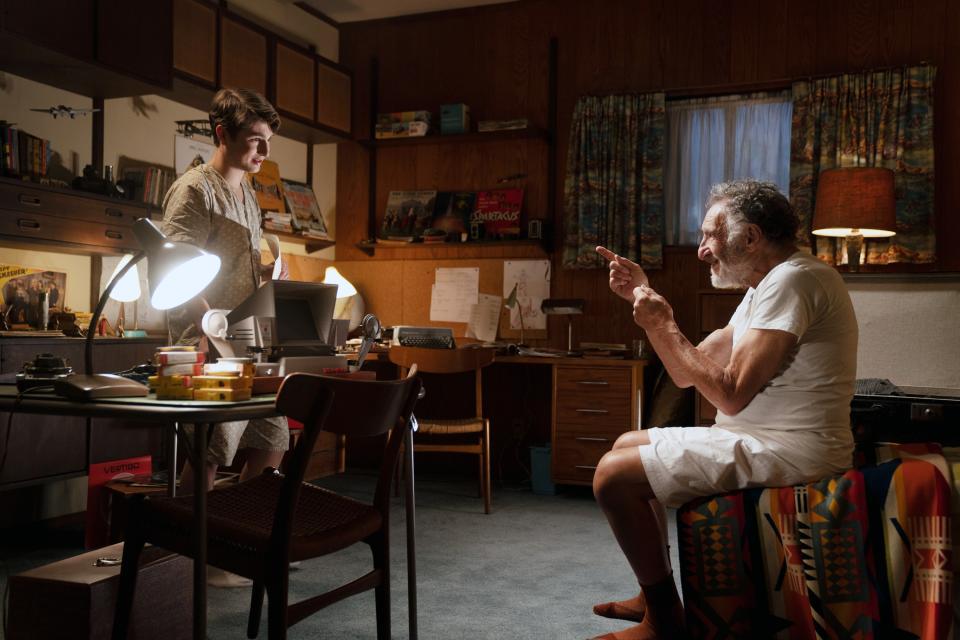
DEADLINE: Seriously?
HIRSCH: Yes. Uncle Boris is the only actual, real name. So, that set me back. I’m behind the eight ball here. I just can’t get any information, no matter how much I ask. I mean, I even ask Tony Kushner, because he’s written this, oh, I don’t know, seven-page monologue. The big question is: why did he come? What’s he doing there? What’s his intent? And why is his intent so intensive? I mean, it’s like, who asked you? Who invited you?
DEADLINE: How did you find an answer to those questions?
HIRSCH: I had to look at it as if it was something from Steven’s very young memory. Not from the point of view of Spielberg remembering it now but going back to a time when he was actually 17 years old and trying to remember it as he might remember it then, or as he felt about it then. And that’s the point of view, the real point of view. And if you take it that way, then you could say that the exaggeration in any way is because of a young mind. So, guess what? I could play it the way I wanted to: I could play the dramatic, almost fictional idea of this man. And I had to do it right on the spot. There was no preparation. You can’t prepare for something like that, which I thought was exciting.
This is the only time I’ve ever been asked to do something like this in my career. And I thought, ‘OK, all right. The invitation is out. Show up, Judd, show up.’ And that’s all I did. We never rehearsed anything. I’d never even met the kid before, Gabriel LaBelle. We just looked in each other’s eyes, and we started. And we never stopped.
What was your way to get into the character?
HIRSCH: I said to myself, ‘The character is there to try to figure a few things out for himself, because he’s already coming with [a lot of questions].’ He’s coming because his sister has died, and he’s come to mourn her. And that’s Steven’s grandmother, OK? But the scene is not set up to be a mourning — that only happens at the very end of the scene — so that’s dramatically interesting. That’ll get any actor to jump in and simply start from the beginning and see how far it goes. I was actually afraid that I was going to be a little bit on the dangerous side. Well, never mind a little bit, a lot.
DEADLINE: To a younger man, someone like Uncle Boris can be very intimidating. And you capture that very well.
HIRSCH: Right. Right. But you see, I didn’t know that. I asked the master, “Is that really what happened?” And here’s his reaction: he smiled. I think he saw the humor under it, which I think is the great relief of the scene, and I think that’s what Steven really wanted. Maybe that’s why he wanted me in this. [Laughs] Oh, I don’t know. There’s always humor in drama, as far as I can see…
DEADLINE: Did you relate at all to Uncle Boris?
HIRSCH: Well, when you do one of these roles, you sort of reach back to things, and maybe you don’t even know you’re doing it. I was brought up in an old family. My mother’s family was old, my father was the youngest of 11 children, and I could hardly ever meet their families, because they were practically gone before I got there, although I knew about them and maybe visited them a couple of times. I was like, “They’re all foreign, and they sound so foreign.” That’s the only thing I had, as a kid, to relate to. Not like most kids; they have a young mother and father, and maybe they have a sibling, and they have aunts and uncles. I had nothing to do with my mother’s family. Nothing at all, except I had one cousin that was close to my age, but nothing else. So, stuff like that gets absorbed and you don’t even realize it. I was brought up in Coney Island, where everything isn’t even real. So, putting that through my brain … It’s kind of dreamy, you know what I mean. I don’t know where it’s coming from either. You kind of show up and you speak from a long time ago. I was never in the circus. I was never a lion tamer. I was never a silent film actor. I never had an accent. Well, not that accent. But there it was. It was right in me.
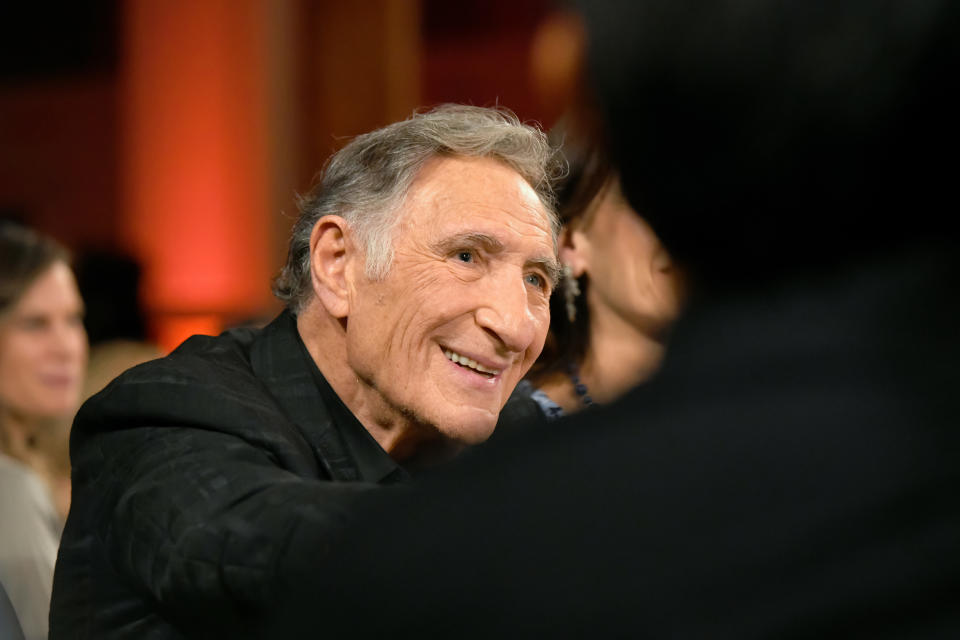
DEADLINE: Did you have an Uncle Boris in your own life, someone who made that kind of impression on you?
HIRSCH: No, but I did have a Polish uncle. My mother was separated, you see, and we were poor. And she depended on her side of the family — her mother and her sister — so we went to live with them in Coney Island. My uncle was a postal worker, but he was like one of those guys from someplace else. I never figured it out. I couldn’t figure it out. He was a very hairy man. He would go swimming in the wintertime in the ocean, and he was so physically in your face. He would often correct me, and my mother invited him to do that. “Listen to your Uncle Harry,” is what she said. And you know what? He found me licking the bottle of a ketchup bottle, and he would hit me.
I kind of liked him though, He was the kind of guy who’d say, “Come on, you’re going for a bike ride today.” I’d say, “But I never learned how.” He’d say, “Today, you will.” So, we go to the boardwalk. He puts me on a bike and shoves me. And I’m telling you, I say, “What are you? Nuts!? I don’t know how to…” He says, “Keep going.” And the funny part about it was — well, it’s not funny — is that he turned out to be a man who went to a mental institution and had a prefrontal lobotomy operation and died. He went off his mind and couldn’t come back. When you have a guy like that in your memory, you can make up anything, if you know what I’m saying. It has to have an effect on you. Well, that was my Uncle Boris, anyway.
DEADLINE: You’ve said that it was very important to you that this is the uncle that made Steven Spielberg a director. Do you think it’s possible to ‘make’ people become artists?
HIRSCH: Well, that’s a quick description of something that [I] really meant to say a hell of a lot more about. When Steven said, “He’s the man that made me become a director,” he didn’t really mean that. He meant that he was the man that made him realize that inside him was something that was going to take him there no matter what. And he was going to recognize it. [My character] is there to warn him that he’s going to have to make a decision, because this will force him to make the decision that — no matter how much he loves his family and is loyal to his family and is concerned about his family — he’s got to leave them. He’s got to go and do what this thing called “art” in the middle of his heart is telling him. Because he’s young, he wouldn’t know it. Now, when I was young, I wasn’t an actor. I was never going to be an actor. There was nothing about acting. I was a kid. I went to school. I went to college. I graduated as a physicist, and I went to art school. I worked as a junior engineer. That’s what I did. And every time I was about to complete something, even getting the degree, I was sort of like, “No, don’t do that. You’re not going to do that.” You know what I’m saying? There was something in me, and I couldn’t put my finger on it.
I had a friend of mine, who became a psychologist later on, and he said, “I think I know what it is you can’t explain.” He said, “You, Judd, have a gyroscope in you. It’ll take you to the place [you need to get to]. You don’t have to worry, but you won’t know you’re going there.” And I said, “What the heck does that mean?” He said, “You always know what you don’t want to do.” And I said, “Can you put a title on that?” He said, “Yes. It’s called ‘negatively inspired’. So, in other words, no matter which way you go, you’re that boat that’s going to go way west, and then way east, and then way north and straight at it. And all of a sudden, you’ll land, and you say, ‘Oh, that’s the thing that was always in me.’” I wasn’t smart enough, intellectually smart enough, to know that that’s where I was going.
Now, look, I wasn’t brought up in a theatrical family. If I was brought up in a theatrical family, hey, I mean, you’d be talking to a different person.
DEADLINE: Shouldn’t that be the title of your autobiography, Negatively Inspired?
HIRSCH: I think that was a good description! I was 18, graduating high school. And afterwards, even into my 20s… Remember, it’s a very impressionable age. So, you start posing, I think that’s the word: posing. Youth poses. I got that from somewhere. It starts to imagine itself as something that it cannot possibly put up the goods for. I mean, I’d go to the movies and imagine myself as some of those people. I would always think that anybody in sports was somebody who is really brave and I’d think, “I could do that!” And you can’t, but you can if you live it through your own mind. It’s great. Well, it’s dreamland, and I guess that’s how we all get where we’re going. We always dream something. We always dream of it.
DEADLINE: How did acting come into your life?
HIRSCH: It was a great need for attention when I was in school. I went to so many schools that nobody knew who I was, because I couldn’t make a friend. We moved 12 times before I was in third grade, and I went to about four schools. So, nobody actually knew me. We’d move in the middle of a term, and I’d have to announce to the class my name. They’d say, “Here’s our new boy.” And I’d say, “Judd Hirsch,” but they never got the first name right for the whole year. They’d say, “John, sit in the first seat, second row.” But I was too shy. I couldn’t say, “Here we go again. It’s not John, it’s Judd.” And someone would say, “Jedidiah?” “No, it’s not.” And someone would say, “Jim.” I was called everything but my real name.
Finally, I got brazen, and in, I believe it was, junior high school or high school, I started acting out. Somehow people came to me. I think the whole thing was just the biggest, funniest thing: I was troubled by having to be funny. That’s the only way I could get attention. And then I knew there, right there: “You’re in the wrong place, Judd. You got to go someplace where you can actually do that [for a living]. Where is that?” And I saw the American Academy of Dramatic Arts while I was hanging out down in Manhattan. I was working then, and no, I was not an actor. I was just trying to survive.
I walked in, and they said, “What do you want?” I said, “I don’t want you to tell me how to act. Just tell me what to act.” [Laughs] Now, I don’t know if you ever saw the look on the face of someone who’s thinking, “This kid is full of crap…” But that’s how brazen I was. Like, “I’m an actor already. Show me what it is that you do!” [Laughs] And that’s how it started. I mean — really, truly — it was like a dare. If you come from Coney Island, the only thing you can think of in your youth is, “Do you dare? Do you dare go on that ride?” There’s a barker outside telling you, “Come on in, and see the two-headed baby,” and you go, “Whoa, whoa. This is not going to be real — but I’m going in.’” You know what I mean?
DEADLINE: What was your first professional acting job?
HIRSCH: Professional means you were paid for it, right?
DEADLINE: Presumably, yes.
HIRSCH: Well, I can only trace it back to a really wonderful experience at the Woodstock Playhouse in Woodstock, New York. Woodstock, New York, by the way, is almost where I live right now and have for quite a while. The first part that I did was in A Thousand Clowns by Herb Gardner. I remember getting the audition. A friend of mine said that they were auditioning people for the lead [who works for a children’s TV show]. But when I read the play, there was a funnier part: the guy he worked for, who was called Chuckles the Chipmunk.
I thought, OK, I’ll audition for that. So, I walk into the audition, and they said, “OK, read the part of Murray.” I say, “What? No, I didn’t come here for that. I came here for Chuckles the Chipmunk.” They said, “Oh no. No. Why would you think that?” And that’s when I got the hint that they didn’t know that I was really, in my mind, attached to wacky people, funny people. I mean, it was the beginning. I didn’t know what was going to happen to me. They said, “No, just read the part of Murray, the lead.” So, I read it, I get the part, and I’m off and running. But always, always, in the back of my mind, I said, I should’ve played the other part. When they called me to do Taxi, I said, “You have a part here, a guy who can’t speak English…” and they said, “Oh, we have Andy Kaufman for that.” I said, “Aw, crap, I would be more interested in playing that guy. It’s too bad you got Andy.” They said, “Why would you think so?” and I said, “Because I could make up the entire language and you’d never know where it came from.”
I was always up for the wrong… [Pause] Let’s put it this way: In my head, I’ve been up for the wrong part in a lot of stuff that I was the star of. The mistake in my life, right?
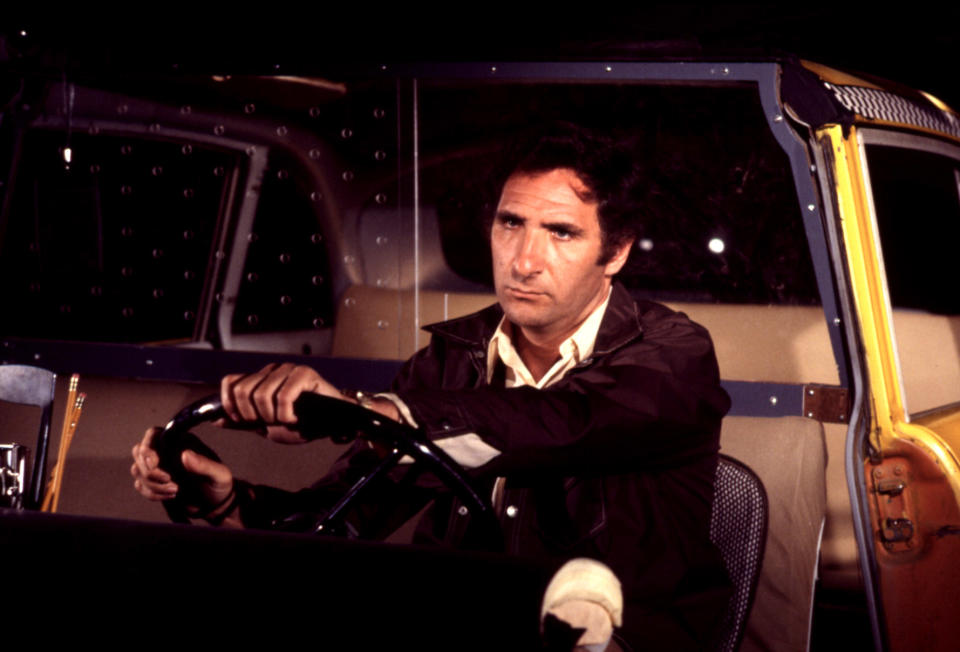
DEADLINE: Did you know Taxi was going to be the big hit that it was?
HIRSCH: I did. I’d done a couple of shows in television, and when it came up, my agent said, “Do you want to do this?” I said, “I just don’t want to be in television right now. I’m 42 years old. I want to travel. I want to go to Europe.” I wanted a more serious feeling about this business, because I had not really done a hell of a lot before that, enough for them to know that I was here. So, I said, “No, forget about it.” He said, “Well, they want to know if you want to read the script.” I said, “OK, I’ll read the script.” And I did, and I said, “Oh my God, this is going to be like at least three years’ work. I’ll be 45. Oh my God, it’ll be half my life already.” He said, “So, what do we do?” I said, “Make them an offer they cannot accept.”
He said, “What’s that?” I said, “You know. You know what it is. It’s called money, conditions, billing, whatever you want to call it.” So, he gives them this whole thing. We were not afraid to do that. And he comes back, and he says, “OK. They accepted everything, except they still have a question about billing.” But they did not get from me how I wanted to be billed.
It’s an ensemble show, alright? I’m one of the stars of the show. It’s me, and Danny DeVito, and this guy, and this guy, and this guy. You know how they do it onscreen: name of the show, starring so-and-so and so-and-so, with so-and-so and so-and-so, plus so-and-so. All right, so along comes opening night… It was the most ridiculous thing I’ve ever seen in my life. I had no idea what the opening of the show would look like. We all were there for the first time to watch the pilot, on a TV set. And it comes on with my name before the title. The first words onscreen are “Judd Hirsch”. And I think, That’s not the name of the show… I was so embarrassed. I’d never seen it before. I’ve never seen a situation comedy with the name of the actor on top. This was their idea.
To this day, let me tell you, I still don’t know why they did that. And nobody’s ever explained it to me. Nobody. You can call Jim Brooks. Jim Brooks, the guy who was the major writer. I’ve said that to him, and all he does is laugh. I said, “What the hell were you guys thinking?” I was a stage actor. You go ask him. I don’t know. It really was embarrassing because the rest of the cast was sitting in the same room. Having said that, nobody ever, to this day, has ever made a point of saying, “How the hell did you get that, Judd?”
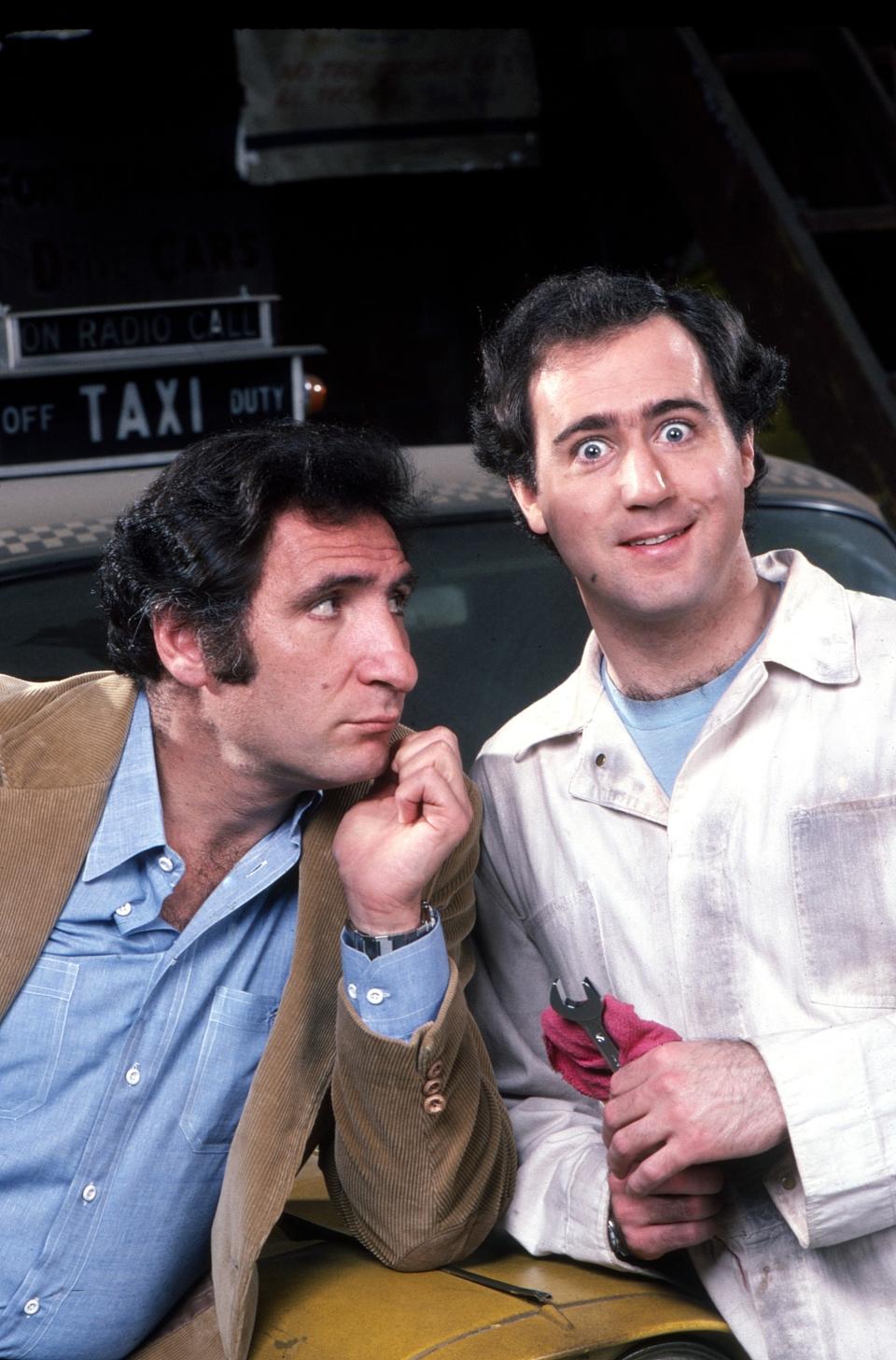
DEADLINE: A quick question about Andy Kaufman. What are your memories of him?
HIRSCH: He was such a normal guy. We all knew him the same way because he was sort of loaning himself out to do the show. He didn’t want to have to rehearse every day. So, to get him, it was a special contract. We’d do the reading, and then he’d go home. And then we had to hire a guy to play him most of the week, because they kept rewriting the show, which is usual for any situation comedy: in America, they rewrite the show every day. So, we kept on wondering, “When Andy comes in, will he know all the lines?” And, yes, he did. He was special. He was sort of apart from us, but when we got to know him, we realized it wasn’t because he was [emotionally] unavailable, he just didn’t want you to know everything about him. He played other people. Famously, actually, he had signed two contracts with Taxi. He’d signed a contract as a character that he played, a lounge lizard [called Vic Ferrari], and he then had to come and play him. We all had to pretend it wasn’t Andy.
Can you see a bunch of actors — not stupid people — who have to do this while a guy they all know is on the set, and they’re not allowed to call him Andy and they’re not even allowed to relate to him as Andy? You could hear the reverberations while it was going on. And he was never going to play the part for long. He never was. In other words, he was going to do it for as long as he could to show you that you’re going to have to throw him out. That was the character. That was his character. He wanted to prove it wasn’t him. Well, we threw him out, and we had to hire somebody for the last two days of rehearsal. I would love to know how Andy remembered it, because he would never tell you that was him. And they played the game with him. They actually called him up and told him they fired the other guy: they fired his friend, Tony. Alright? Talk about fiction! Well, I guess that’s our business.
DEADLINE: After Taxi, where did you go from there?
HIRSCH: I’d always go back to the stage. We had hiatuses from about February to July. So, I would go back and do a play because that’s where I belong.
DEADLINE: What kind of plays appeal to you? What do you like about theater and what kind of dramas, or what kind of plays do you enjoy?
HIRSCH: Somehow, I think that’s where I was really born. In my head. Everything else feels a little bit on the fake side. For instance, let’s say you do something [on film] and I say, “Let’s do another take…” You know what I mean? You cannot ever know exactly what you just did. So, it all seems a little [fake]. But on the stage, either you do it and they believe you out there, or it fails and you fail. And that challenge made me an actor. That’s a challenge. I always want to be believed. I’m doing that to you right now! I want to be believed.
DEADLINE: [Laughing] I believe you!
HIRSCH: And it’s because I know the truth. You don’t play anything but the truth. You’re given a script. What are you going to do with it? You can’t fake it. You can’t say, “I’m going to play something that’s not [the character] or [do things] that [this character] doesn’t believe.” You’ve got to put together all the things that are true about the character you’re playing. I don’t know anybody who’d play a character that they don’t like, because why play them if you don’t like them? If you don’t like the writing then, of course, don’t play it. If this thing is no good, don’t play it. But that’s not what happened to me. What happened to me is I got in with some really good people. Lanford Wilson, for instance. He actually wrote a play for me. It’s called Talley’s Folly. It won the Pulitzer Prize in 1980. I was nominated for a Tony for that one. I was nominated for an Academy Award for Ordinary People the same year. And I was nominated once again [for a Primetime Emmy] for Taxi. All three in one year. I think I won the one for Taxi, I did not win the Tony that year, and I did not win the Academy Award. But I was nominated for all three.
DEADLINE: Had you been reluctant to go into movies?
HIRSCH: No. No, no. Not at all. No, I wanted to. I just didn’t know whether… How do you say this? If you gain popularity in one thing, like television, you’re kind of sensitive to the fact that they will not take you seriously for the movies. They’ll say, “Well, yeah, you can do that, but…” For example, I was trying to get a friend of mine an agent. He wanted the agent so that he could get sent up for television shows. He wanted to make a living. So, he sent the agent his credits. And the only thing that the agent, here in Los Angeles, said [about his resumé] was “Well, it’s kind of stagey.” To me, that’s insulting, because that’s where I came from. So, I thought that was the business. But they didn’t do that to me.
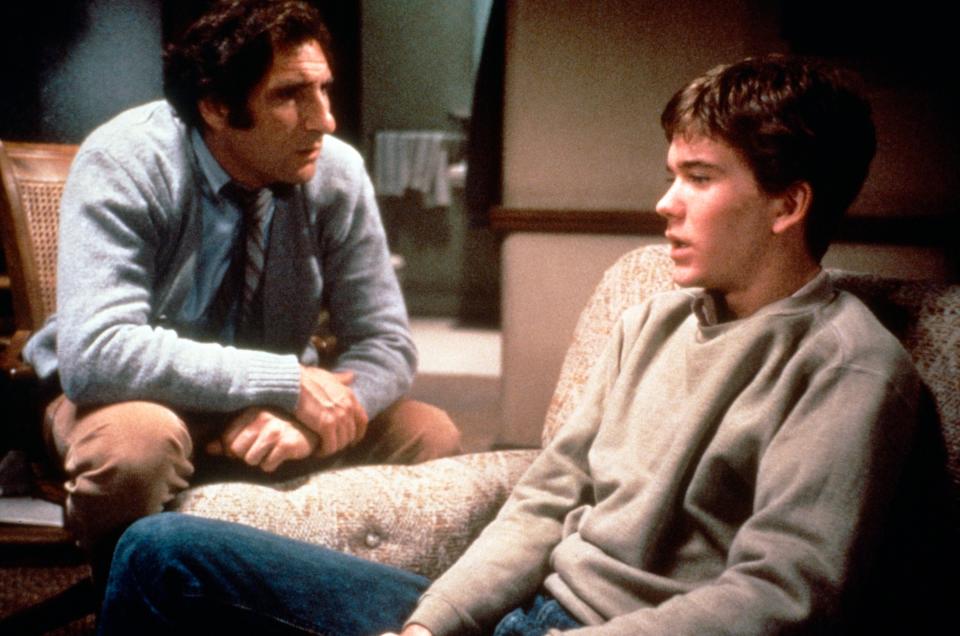
DEADLINE: What was your first big movie role?
HIRSCH: God, what was it? I mean, Ordinary People really was the one. I did a few before that, but, let’s put it this way, they were not major. Well, they were good enough pictures, but they were not major pictures to the extent that Ordinary People was. So, I got very lucky doing that. When Redford told me that he wanted me to play this part, I said, “Isn’t it a book?” And he said, “Yes.” I said, “Can I read it?” “Yes.” So, I read the book, and then I realized the book is the interior [monologue] of a boy who’s looking out at the world. He’s troubled. And the movie was going to be a third-person look, from a camera point of view, of this kid.
The guy I was going to play, is obese in the book. And he’s clumsy. He doesn’t know how to operate his own radio. And I thought, “What a wonderful idea.” Because in [my] reading of the book, the kid only comes to him, because he’s asked to. I said, “Wouldn’t it be wonderful if he said, ‘I’m not going back there anymore.’ Because what really happens is he does go back, and it’s completely successful. And Robert Redford conceived it that way. “You,” he said, “are going to hug this kid.” And I said, “Oh, crap. You’re going to hear from the Psychologists’ Society. They don’t do that.” He said, “You will.” I said, “You’re going to have to pay for that.” He said, “OK.” That’s the point of the whole movie: this kid comes in, and his psychologist says, “I’m your friend.” And the kid says, “You are?” And I say, “Count on it.”
So, there was a shot where I hugged the kid. And we spent a lot of time on that shot. Robert put a track around us and he rotated the camera. As we’re doing this scene, and it’s very long, the kid’s telling me things, and I’m telling him stuff, and the camera’s going around. Robert said, “Don’t think about where the camera is. Don’t worry about that. Just keep talking.” And we did. He said, “Thank you, great.” And that was, I think, the last scene I did. I went back to do Taxi because I was still doing that.
And then I met Robert one day, walking into Paramount. He had to shoot a scene that he hadn’t shot yet, which was the two boys on the boat, and he had to do it in a studio. So, I said, “Hey, Robert, how’d it go?” “Good,” he said, “Really good.” I said, “People have told me that the picture’s going to be quite good.” He said, “Yeah, yeah, yeah.” I said, “What was that scene like? How’d that scene come out where you put the camera in a circle and went around us?” He said, “I cut it.” I said, “What!?” He said, “By the time we put that scene up, we realized that both of you had said everything before.” He said it was repetitive. Dramatic? Wow! Camera-wise? Beautiful. But it didn’t fit. So, you see, I don’t have control over those wonderful things that I did. And thereby hangs a tale.
DEADLINE: About what?
HIRSCH: I’m going to say thank you for listening.
DEADLINE: I’m a very good listener.
HIRSCH: [Laughs] The true answer is I still don’t know the answers to some of the questions that people ask me, because I think about these things myself. How did I become an actor? What does it feel like doing it? How do you get chosen for this role or that? I’m telling you; I’m talking from inside some sort of suit or mask. I can’t see myself knowing these things. That’s all.
DEADLINE: I’m going to race forward a few years, because I don’t want to keep you from your pie. You’ve had a bit of a renaissance lately, not just from Steven Spielberg but with a lot of younger directors like Noah Baumbach, the Safdie brothers and…
HIRSCH: …Kelly Reichardt.
DEADLINE: What is it that these people see in you and what do you see in them, more importantly, perhaps?
HIRSCH: I’m not sure that I really know that. I’m telling you the truth! I had to play Michelle Williams’s father [in Reichardt’s film Showing Up]. This was just before we did The Fabelmans, and we both knew that we were going to be in that movie together again. And it became a problem, to tell you the truth, because Steven thought about it for about a couple of days and actually said to somebody. — I mean, it came to me by hearsay — that I might not be able to be in his movie because I’d played her father just before that. But I’m pretty sure that was wiped away in 20 minutes, because the part in Kelly’s movie is not big. She doesn’t do things that are terribly dramatic, if you know what I’m saying. It’s her feeling about who you are that makes her comfortable that you’re in the movie. As I remember, there was a script, and you would get to a point where perhaps you would say what you were supposed to say, and she would say, “How about if we don’t say anything?” I think that’s what she was interested in: I think she was interested in having me as a sort of an interior, thinking person for this movie. She does movies that way, which I truly appreciate.
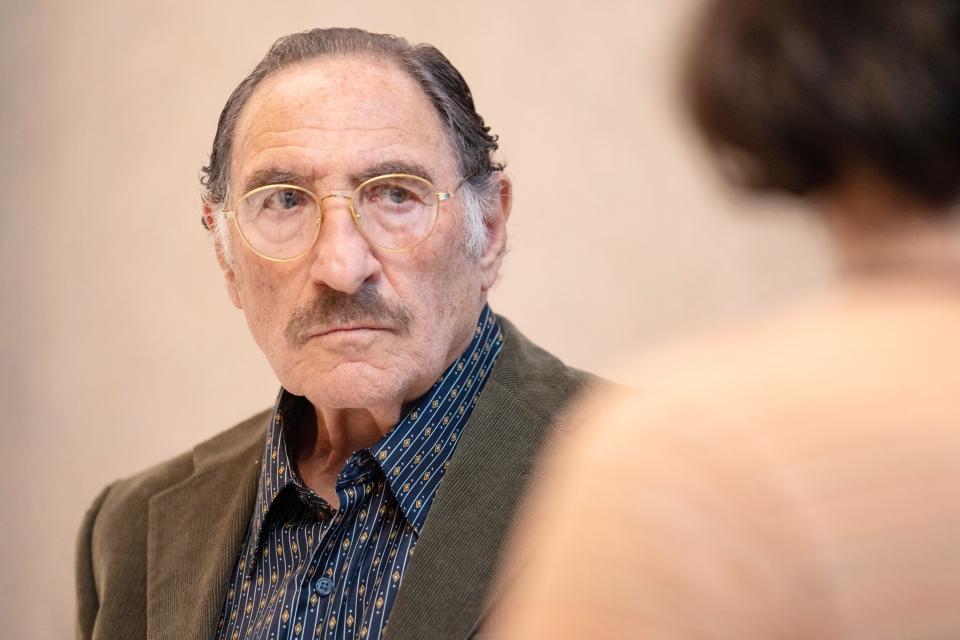
DEADLINE: I can see why the Safdie brothers would be interested in you. Were you particularly drawn to them?
HIRSCH: There’s another one. I don’t get it. I really don’t get it. [Laughs] I don’t know what heck they were talking about. I don’t know. I truly don’t know. Why was I supposed to be…?
DEADLINE: But there’s a strong New York aesthetic there.
HIRSCH: I think that’s what it was. Yeah. It was a tough movie. Not for me, but it was a tough movie.
DEADLINE: Why was it tough? Tough to watch?
HIRSCH: Yeah, because Adam Sandler dies! The character gets shot! I read it. And I said, “What the hell do you want me for with that silly name?” [The character is called Gooey.] They said, “It was a real relative of ours. That’s why we have that name.” I said, “OK.” I said, “I’ll tell you why I’ll do it.” They said, “Why?” I said, “Because he dies!” It’s expected, but it’s not expected. It’s a shock. And I think that’s exactly what should have happened. I’m remembering movies back in the ‘50s, where the main character, who we loved, always dies in vain. It could be a criminal, like The Postman Always Rings Twice. Remember that movie? John Garfield. He did a boxing movie. They always die at the end! Before that, everything had to end with a happy ending. But then it changed in the ’50s, because we got affected by what European movie makers were doing: what the English were doing, what the French were doing, what the Swedish were doing. You had tragedies. No longer did the law always win in the end. I thought, “Yeah, yeah, I want to be in a movie where I die.”
DEADLINE: And did you? What movies have you died in?
HIRSCH: I did one, it was a remake. What the hell was it…? [Editor’s note: most likely 1988’s NBC production The Great Escape II: The Untold Story.] It’s set after the Second World War, and we’re trying to find this murderous Nazi guy who’s hunting down the British soldiers who’d tortured him during the war. I was actually supposed to play a British guy, but they changed me to American, because they didn’t want me to sound English for some reason. I don’t know why. I was very willing to do it. I remember I had a moment where I had to say, “Yes, well,” which is what Americans don’t say. Only the English say that when they’re trying to change the subject.
DEADLINE: How did you die?
HIRSCH: I got shot. [Pause] I didn’t enjoy the way I died in any movie.
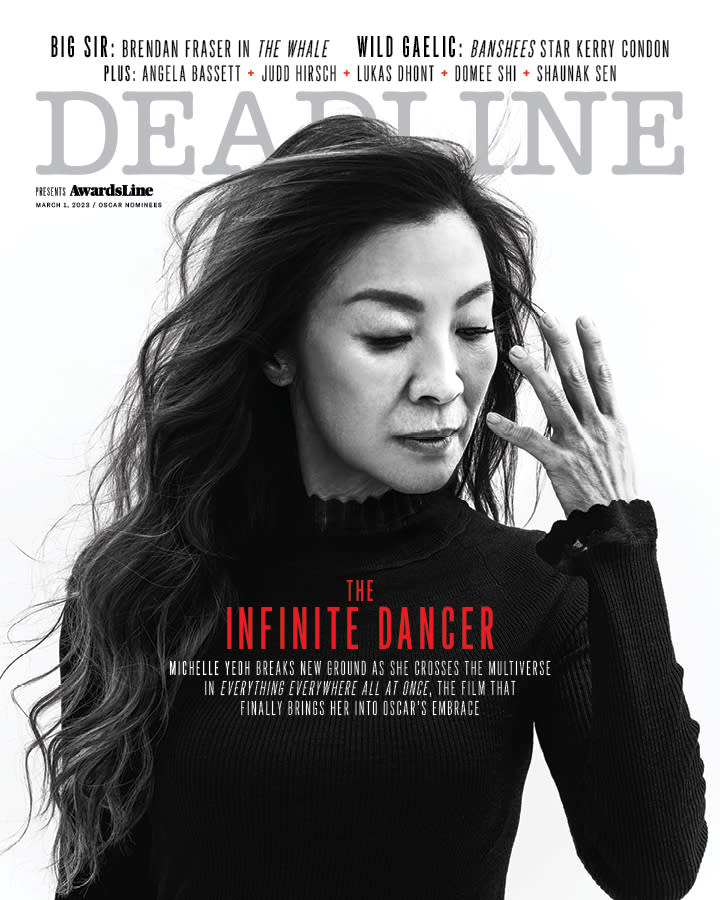
DEADLINE: Last question. What would you pick out if you’re doing a clip reel of your movies? What would be your highlights?
HIRSCH: I suppose it’s because I’m not young anymore that when I look back at the stuff that I did, it’s never satisfactory, it’s never complete. There’s never a total satisfaction. Someone did a documentary of Paul Newman recently, and I remember that, when he got older, he did a movie called The Verdict [1982], in which he played a sort of has-been lawyer. And he considered that the best picture he ever did. Of all the movies he’d done, he chose that one, when he was an older guy, because he didn’t believe the other characters that he’d played. He just didn’t believe them completely.
Best of Deadline
Sign up for Deadline's Newsletter. For the latest news, follow us on Facebook, Twitter, and Instagram.

